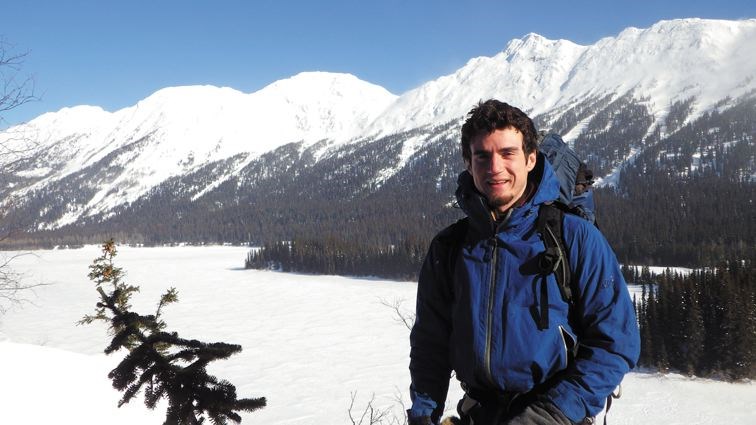Leland McKeeman is eight months away from his dream.
In March, he'll step foot on the Appalachian Trail, and eventually hike through 14 states and join the couple million people who make the famous trek every year.
But for McKeeman, every step of that climb will have meaning as he tries to raise $10 for every mile he covers - or $21,810 - all in support of mental health services.
"The issue of mental health is of personal importance to me, it having affected my life and my family's life," said McKeeman, who was diagnosed with bipolar disorder at 19 and has struggled with both extreme fluctuations in mood as well as depression in his younger years.
"It's always been a dream of mine to finish the trail. I figured while pursuing this goal and dream of mine to give back to others," said McKeeman, who figures it will take him between five and six months to finish.
It'll be the 25-year-old's second time on the picturesque peaks, and six years after he hiked a section with a friend, which he remembers fondly but also as a time where he experienced intense bouts of depression.
"I would feel great for a few days and then struggle with no energy and feelings of worthlessness," McKeeman recalled in a website he's created for his fundraising efforts.
Not long after that first trip, McKeeman considered suicide and realized he needed help.
So he checked himself into the emergency room and stayed in the psychiatric ward for three weeks.
"The years since have not been easy," he wrote.
But McKeeman said a combination of luck, good medication, counselling and psychiatric help and the support of family and friends means he is finally managing his illness.
That's also what this hike is about.
"It's something that I'm doing to show that I feel like I'm over hill, reached that kind of turning point. I just want to look back at what I've gone through and what other people are going through, and maintain that focus and see that other people are still struggling."
That struggle, he said, is made more difficult by the public stigma and lack of support services.
"I think mental health in general is a field in medicine isn't given quite as much attention as others. It's just not receiving as much funding," said McKeeman.
"Even though the system is universal, the wait times and access that especially young people have to mental health is quite restricted. There's a lot of improvement to be had, especially when it comes to marginalized or people who aren't quite as privileged: students, people in poverty, (those with) substance abuse and family troubles," he said.
"It's almost like you need supplemental insurance to really get constant care."
When McKeeman moved to Prince George from Minnesota just under three years ago, it took him three months to see a psychiatrist.
"I didn't have a burning need to but it's frustrating when you want to get connected and you want to do the best thing for your health," he said.
"That's quite a long period of time. A lot can happen in three months."
He completed his degree at University of Northern B.C. and said the transition from the stresses of student life has been positive. He now works in forestry consulting and said working in the bush helps his mental and physical health.
"Being outside and being in nature, somewhere where it's a little quieter is definitely something that I benefit from."
Twenty per cent of Canadians will experience mental illness, according to the Canadian Mental Health Association, and it touches most people through a family and friends.
McKeeman said he's doing his part to make sure more understand that reality.
"It's a health issue and it should be viewed as such," he said. "I guess I'm trying to shrug off the stigma in terms of just being somebody who's okay with being known to have this."
McKeeman is partnering with Hike For Mental Health and said 80 per cent of all proceeds will go to the Brain and Behavior Research Foundation and 20 per cent to wilderness trail maintenance.
For more information or donate to McKeeman's cause, visit his website www.footstepsformentalhealth.wordpress.com.



